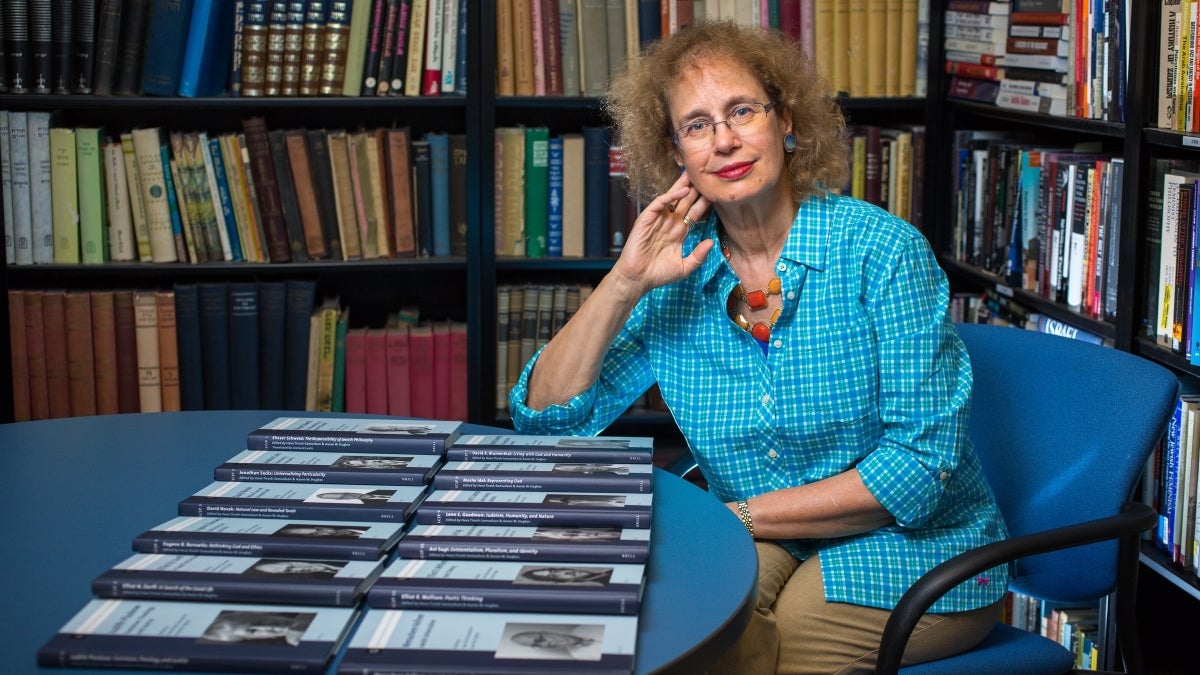Exploring dignity in death with a Jewish perspective

How do we die with dignity?
An Arizona State University professor is bringing together voices from science and religion to explore this complicated issue at a conference this weekend.
The discussion will have a Jewish viewpoint. Rabbis, chaplains, physicians, academics and people of faith will gather for “Health, Mortality and Morality: Jewish Perspectives” on Sunday and Monday. This will be the eighth annual conference held by the Judaism, Science and Medicine Group, which is part of the Center for Jewish Studies at ASU.
Hava Tirosh-Samuelson, director of the center, said a goal of the conference is not to be contentious.
“It’s not about being enemies. It’s not about being friends,” she said. “It’s how we understand the past, present and future, taking into consideration both science and religion.”
The relationship should not be understood as “either/or” but rather as “both/and,” she said.
“You need both approaches to figure out how humanity has thought about itself,” said Tirosh-Samuelson, who launched the Judaism, Science and Medicine Group in 2008.
The conferenceBesides the Center for Jewish Studies, the other sponsors are the Harold and Jean Grossman Chair in Jewish Studies and the Irving and Miriam Lowe Professor of Modern Judaism. Co-sponsors include Valley Beit Midrash and the Dr. Michael Anbar Memorial Lecture in Judaism, Sciences and Medicine Endowment. will bring together people representing different strands of Judaism — including Orthodox, Conservative, Reform and Reconstructionist.
“These people are right next to each other and have to talk to each other. It’s not common,” she said. “It’s hard to do.”
Tirosh-Samuelson said she’s succeeding in drawing together these different voices because a university is a good place to tackle difficult and emotional subjects like dying.
“It’s not advocacy. We can look at it in an analytical way,” she said.
“It’s all about creating bridges.”
The conference lecturesThe conference will be at the Embassy Suites Phoenix-Scottsdale, 4415 East Paradise Village Parkway South, Phoenix. will include “Can the Bible Be Our Guide?” and “Dying in the Age of Advanced Medicine.”
Previous conferences have addressed topics including obesity, addiction, healing and evolution.
She said the conferences are not large, but the discussions are deep. And the work is at a high level. The Journal of Jewish Ethics has agreed to produce a special issue based on next week’s conference after the presenters’ papers have been reviewed.
The focus on science and religion is a distinctive focus of the Center for Jewish Studies. Another aspect of Tirosh-Samuelson’s research focuses on religion and ecology and this semester she is teaching a course on “Religion and Environment.”
The newly launched Spirituality and Sustainability Initiative at ASU indicates that people are beginning to pay more attention to the relevance of religion and culture to our contemporary ecological crisis.
“We should all be grateful to Pope Francis, whose encyclical 'Laudato SiLaudato si is the second encyclical of Pope Francis. The encyclical has the subtitle On Care For Our Common Home. — Wikipedia' has made the ecological crisis into a moral issue of the first order,” Tirosh-Samuelson said.
Top photo: Hava Tirosh-Samuelson is director of ASU's Center for Jewish Studies and launched the Judaism, Science and Medicine Group in 2008. Photo by Charlie Leight/ASU Now